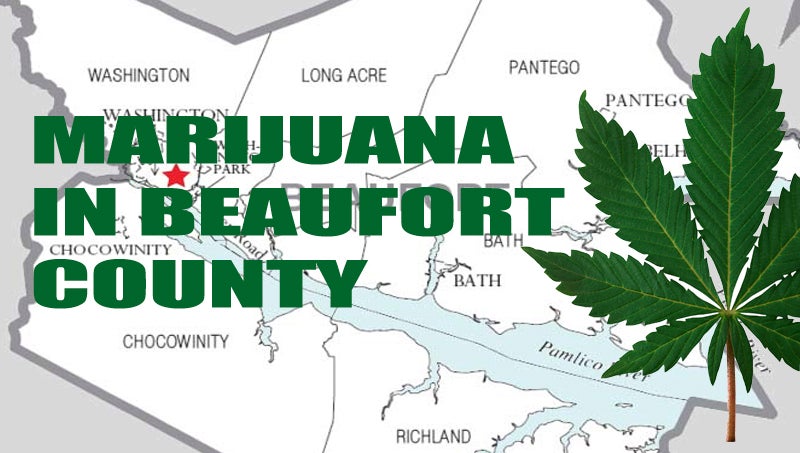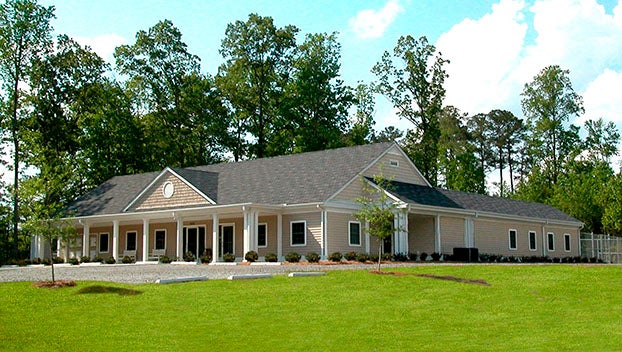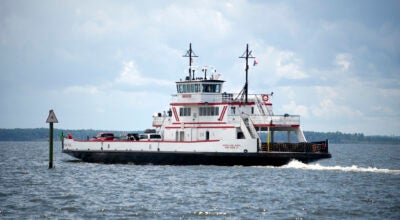Attitudes change, but state law remains
Published 7:46 pm Thursday, April 19, 2018
For many in the United States and around the world, April 20 marks a day to celebrate all things cannabis. From large public gatherings in states where marijuana has been legalized, to synchronized smoking sessions at 4:20 p.m., pot use across the country will undoubtedly spike today.
While recreational use of marijuana remains more restricted than the use of the plant for medicinal purposes, 29 states throughout the country currently permit medical marijuana sales to some degree. Of these 29, nine permit the use of the drug for recreational purposes among adults age 21 and older.
LAW ENFORCEMENT WEIGHS IN
Cannabis is illegal in the state of North Carolina. Regardless of personal opinion on the matter, law enforcement officers throughout the state, and here in Beaufort County, are sworn to uphold N.C. law.
For Lt. Russell Davenport, head of the Beaufort County Sheriff’s Office drug unit, today’s marijuana is a whole different animal from the stuff mom and dad might have tried in the 1960s and ’70s. With higher THC content — the psychoactive ingredient that causes a “high” — Davenport sees these more powerful strains of marijuana, as well as the newly popularized process of extracting cannabis oil, as presenting new challenges for law enforcement.
“Back in the ’70s and ’80s, you only had two to four percent THC,” Davenport said. “Now we’re up to 30 and 40 percent, and when you extract THC, you’re up to 89 percent.”
Davenport also notes that there have been people assaulted and even killed in Beaufort County as a result of marijuana cultivation/dealing. In terms of legalization, he also contends legalizing the drug would create a regulatory headache for government officials and a new form of black market activity to avoid taxation and regulation.
“As long as it’s the law, we’re going to enforce it,” Davenport said. “I’ve been doing this for years, and I always get the argument that marijuana has never killed anybody. I know people that have been robbed, shot and killed because they were selling marijuana. It’s happened here in Beaufort County.”
According to Washington Police and Fire Services Director Stacy Drakeford, the Washington Police Department made a total of 97 marijuana-related arrests in 2017. Of these arrests, 60 resulted in felony charges and 37 were misdemeanors. Thus far in 2018, Washington has seen 33 arrests, 27 of which ended in felony charges, with six resulting in misdemeanor charges.
DIFFERING OPINIONS
For Washington resident Derek Cooper, who relocated to Beaufort County from the D.C. Metro area 10 years ago, one argument for legalization is that doing so could potentially eliminate funding for other criminal enterprises.
“I support the full legalization, but not because I like the idea of people using recreational drugs,” Cooper said. “The work that our law enforcement have to do; they can’t do it. We have been unable to stop the use of illegal drugs, and the result is that the commerce in drugs supports the criminal element. I want to legalize it so that money dries up.”
Cooper says that were marijuana legalized, it would be important to prevent children from using marijuana by imposing stiffer penalties on those who provide the drug to minors.
“We allow adults to do all kinds of dangerous things like jump out of airplanes and play with venomous snakes,” Cooper concluded. “Laws should be limited to regulating behavior that impacts others. Adults should have the freedom to make bad choices, and to accept the consequences.”
ALTERNATIVE USES
While pot remains illegal in N.C., the state has embraced two alternative uses for cannabis: the growing of industrial hemp and the regulation of cannabis oil to treat individuals who suffer from seizures.
An industrial hemp pilot program, administered by the North Carolina Department of Agriculture, is creating new opportunities for farmers. Distinct from marijuana in that it lacks THC, industrial hemp can be used for a variety of purposes, from paper and biodegradable plastics to construction material and fuel.
For those who suffer from epilepsy, the use of cannabis oil can help control and even stop seizures. In 2015, Gov. Roy Cooper signed the Epilepsy Alternative Treatment Act into law, allowing university researchers to conduct research and trials on the medicine.
In 2017, three bills were filed in the North Carolina General Assembly to allow access to medicinal cannabis. House Bill 185, as well as Senate Bill 648 and 579, were referred to committees and none have been revisited since.
LEGAL STATUS IN NC
In North Carolina, marijuana is classified as a schedule VI controlled substance, set aside from other controlled substances in a category of its own.
Possession of up to half an ounce of marijuana is a Class 3 three misdemeanor offense, which carries no prison sentence. Possession of up to 1 1/2 ounces is a Class 1 misdemeanor; possession of more is a Class I felony.
Penalties for growing and selling marijuana are far more severe. Growing the plant is considered a Class I felony, and the sale of marijuana is considered a Class H felony. If an individual possesses more than 10 pounds, they can face up to 39 months in prison and a fine of $5,000. At the top of the scale, someone possessing more than 10,000 pounds of marijuana could be looking at 18.5 years in prison.






